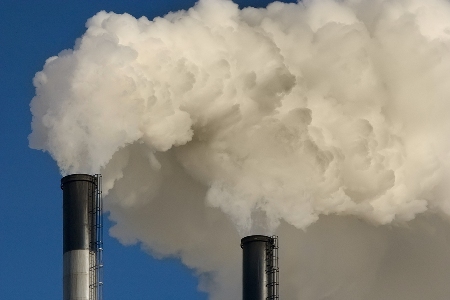"The ERF's aim of cutting greenhouse gases at least cost would be greatly assisted by finding ways to bring international abatement options into the policy. A tonne of carbon dioxide emissions from Australia has the same impact as a tonne from anywhere else in the world – but Australia faces higher domestic abatement costs than many other countries.
"High quality international emissions credits are available in large volumes at very low prices. Establishing a reserve of these credits, as well as allowing them to be used to meet any 'make good' requirements the government may impose, would lower overall costs and guarantee achievement of the 2020 emissions target and progress to longer term goals within the government's allocated budget.
"As well as making use of the international opportunity, the government should make some simple changes that would increase the uptake and effectiveness of its domestic abatement auctions.
"Project proponents need confidence they can recover their costs as long as they deliver the abatement they pledge. Therefore either contracts should be able to run for longer than five years, or proponents should be able to recover their costs within five years. Cost of abatement is the right central criterion for selecting projects, but the metric used needs to consider cost over the life of the project to avoid closing off long-term least cost emissions reductions.
"The make-good requirement for projects that do not deliver is a major worry for bidders and could discourage participation. The potential for non-delivery could be better managed by withholding payment, prequalification for bids and a risk-based approach to setting the volume of abatement contracted for. Alternately, allowing international credits to be used for a make-good, with appropriate protections against windfalls, would reduce bidder risks.
"A longer consultation process is underway to discuss the government's proposed safeguard mechanism. This extended discussion period is welcome. The baseline-setting system proposed in the Green Paper would be administratively simple, but risks penalising many businesses for ordinary activity, contrary to the government's intention. This element should be either substantially reworked or removed.
"Finally, cementing the availability of ERF funding through a dedicated Special Account with a legislated appropriation would underpin the development of longer term projects and of the aggregators needed to unlock dispersed abatement.
"We look forward to the next stage of consultation on a further improved ERF proposal," Willox said.
- Suppliers
- New to IndustrySearch? Book a Demo
- Advertise with us
- Login
- Email Marketing
- Buyers
- Get Quotes
- Articles & Ideas
- Login
- Subscribe to newsletter
- My Details
- Get Quotes
- Automation & Control
- Automotive Workshop Equipment
- Commercial Cleaning Equipment & Supplies
- Construction Equipment & Heavy Machinery
- Conveyor Systems & Components
- Electrical & Power Generation Equipment
- Electronic Components
- Farming & Agriculture
- Food & Beverage Processing
- Forklifts & Forklift Attachments
- Hydraulic & Pneumatic Equipment
- Industrial Materials, Tools & Components
- Industrial Pumps
- IT Hardware & Industrial Computing
- IT Software & Applications
- Laboratory Equipment & Instruments
- Manufacturing & Industrial Equipment
- Material Handling & Lifting Equipment
- Metalworking & Machining
- Mining Equipment & Machinery
- Packaging & Labelling Machinery
- Pallet Handling Equipment
- Personal Protective Equipment
- Security & Surveillance
- Test & Measurement
- Transport & Logistic Equipment
- Warehouse Storage, Shelving & Racking
- Waste Treatment & Environmental Management
- Welding Machines & Accessories
- Woodworking & Joinery Machines
- Workplace Equipment
- Workplace Safety Equipment
- Get Quotes
- Automation & Control
- Automotive Workshop Equipment
- Commercial Cleaning Equipment & Supplies
- Construction Equipment & Heavy Machinery
- Conveyor Systems & Components
- Electrical & Power Generation Equipment
- Electronic Components
- Farming & Agriculture
- Food & Beverage Processing
- Forklifts & Forklift Attachments
- Hydraulic & Pneumatic Equipment
- Industrial Materials, Tools & Components
- Industrial Pumps
- IT Hardware & Industrial Computing
- IT Software & Applications
- Laboratory Equipment & Instruments
- Manufacturing & Industrial Equipment
- Material Handling & Lifting Equipment
- Metalworking & Machining
- Mining Equipment & Machinery
- Packaging & Labelling Machinery
- Pallet Handling Equipment
- Personal Protective Equipment
- Security & Surveillance
- Test & Measurement
- Transport & Logistic Equipment
- Warehouse Storage, Shelving & Racking
- Waste Treatment & Environmental Management
- Welding Machines & Accessories
- Woodworking & Joinery Machines
- Workplace Equipment
- Workplace Safety Equipment
Trusted by 1,000,000+ Australian industrial buyers
Buyers
- Discover products & solutions
- Login
- Subscribe To Newsletter
- Browse All Products
- Read Articles
Suppliers
Advertise
- Promote your products & solutions
- New to IndustrySearch? Book a Demo
- Login / Forgot Password
- Advertise Your Products
- Success Stories
- Email Marketing
- Suppliers
- Advertise with us
- Login
- Email Marketing
- Buyers
- Get Quotes
- Articles & Ideas
- Login
- Subscribe to newsletter
- My Details
Get Quotes
- Automation & Control
- Automotive Workshop Equipment
- Commercial Cleaning Equipment & Supplies
- Construction Equipment & Heavy Machinery
- Conveyor Systems & Components
- Electrical & Power Generation Equipment
- Electronic Components
- Farming & Agriculture
- Food & Beverage Processing
- Forklifts & Forklift Attachments
- Hydraulic & Pneumatic Equipment
- Industrial Materials, Tools & Components
- Industrial Pumps
- IT Hardware & Industrial Computing
- IT Software & Applications
- Laboratory Equipment & Instruments
- Manufacturing & Industrial Equipment
- Material Handling & Lifting Equipment
- Metalworking & Machining
- Mining Equipment & Machinery
- Packaging & Labelling Machinery
- Pallet Handling Equipment
- Personal Protective Equipment
- Security & Surveillance
- Test & Measurement
- Transport & Logistic Equipment
- Warehouse Storage, Shelving & Racking
- Waste Treatment & Environmental Management
- Welding Machines & Accessories
- Woodworking & Joinery Machines
- Workplace Equipment
- Workplace Safety Equipment
Get Quotes
- Automation & Control
- Automotive Workshop Equipment
- Commercial Cleaning Equipment & Supplies
- Construction Equipment & Heavy Machinery
- Conveyor Systems & Components
- Electrical & Power Generation Equipment
- Electronic Components
- Farming & Agriculture
- Food & Beverage Processing
- Forklifts & Forklift Attachments
- Hydraulic & Pneumatic Equipment
- Industrial Materials, Tools & Components
- Industrial Pumps
- IT Hardware & Industrial Computing
- IT Software & Applications
- Laboratory Equipment & Instruments
- Manufacturing & Industrial Equipment
- Material Handling & Lifting Equipment
- Metalworking & Machining
- Mining Equipment & Machinery
- Packaging & Labelling Machinery
- Pallet Handling Equipment
- Personal Protective Equipment
- Security & Surveillance
- Test & Measurement
- Transport & Logistic Equipment
- Warehouse Storage, Shelving & Racking
- Waste Treatment & Environmental Management
- Welding Machines & Accessories
- Woodworking & Joinery Machines
- Workplace Equipment
- Workplace Safety Equipment
Trusted by 1,000,000+ Australian industrial buyers














